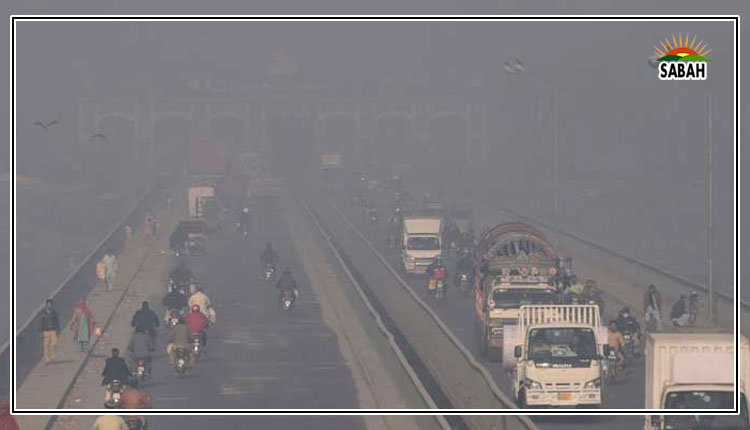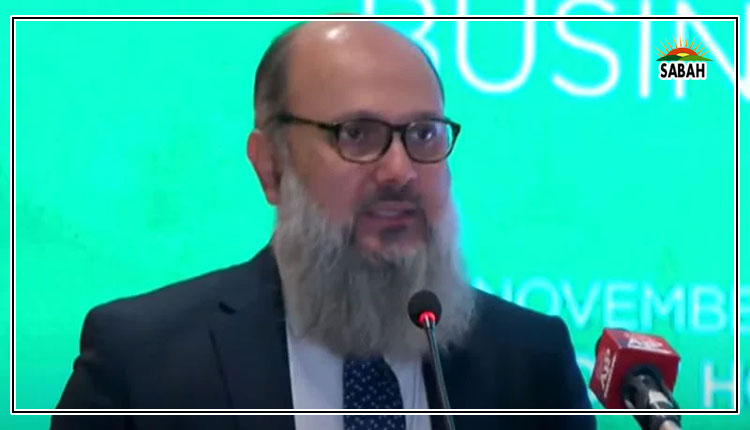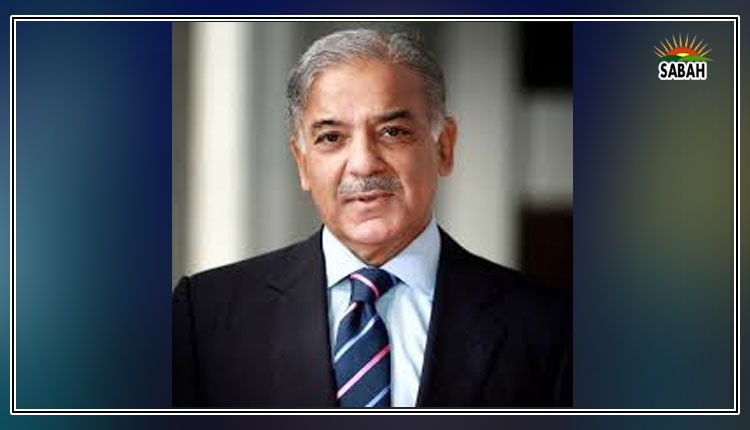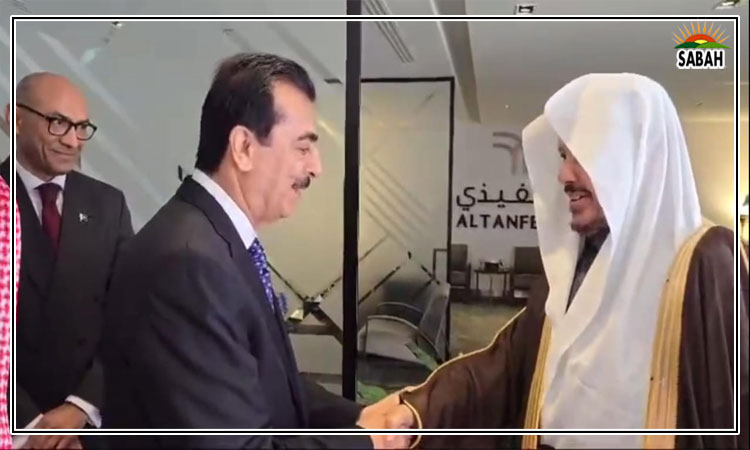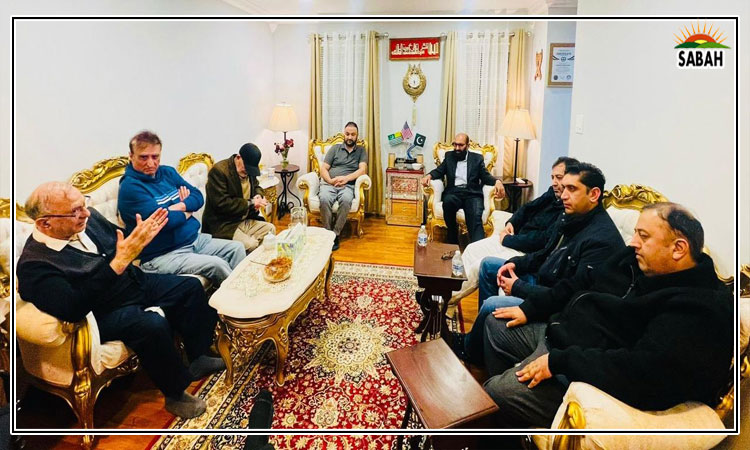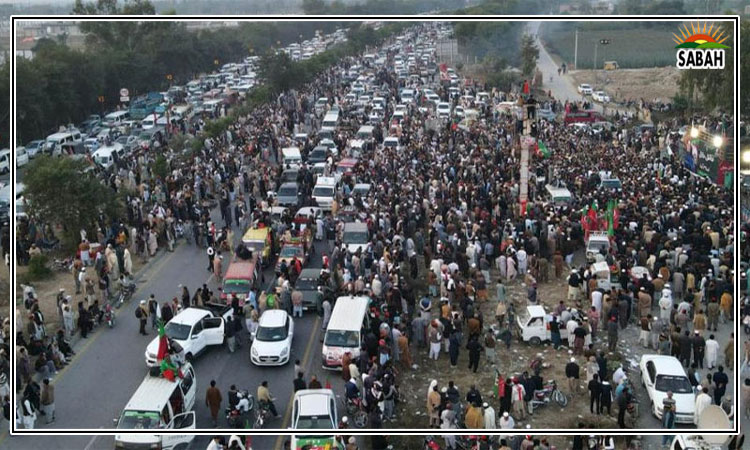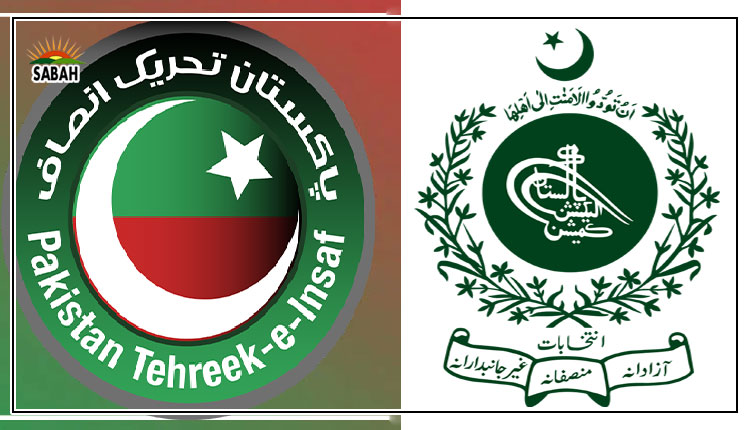Election Commission of Pakistan reserves verdict on pleas challenging Pakistan Tehreek-e-Insaf’s intra-party elections
ISLAMABAD, Dec 18 (SABAH): The Election Commission of Pakistan (ECP) on Monday reserved its verdict on a set of petitions challenging the Pakistan Tehreek-e-Insaf’s intra-party elections.
The polls, which resulted in Barrister Gohar Ali Khan replacing Imran Khan as PTI chairman, were held on December 2 on the directives issued by the electoral body. The lawyer was elected as the new party chief after being nominated by Imran, who is incarcerated at Adiala Jail.
However, the party was on the receiving end of sharp criticism over the polls as estranged PTI founding member Akbar S. Babar announced that he would challenge the entire process. He had alleged that the PTI had carried out a selection process aimed at throwing out party workers to give the reins to a few lawyers.
Babar had also penned a letter to Chief Election Commissioner (CEC) Sikandar Sultan Raja. He had said that after the commission directed the party to hold the polls, the PTI core committee issued a press release saying that preparations were complete and announced Niazullah Khan Niazi as the PTI CEC.
Separately, the leaders of the country’s mainstream parties, including the PML-N and PPP, also questioned the legitimacy of the intra-party elections.
At the previous hearing, the ECP had issued a notice to the PTI while hearing Babar’s petition challenging the polls.
On Monday’s hearing was attended by Babar, PTI Chairman Gohar Ali Khan, Senator Barrister Syed Ali Zafar and others. The case was heard by a five-member commission headed by CEC Sikandar Sultan Raja.
At the outset of the proceedings, PTI counsel Barrister Ali Zafar emphasised that the tenure for the party’s chairman in office was five years, and the panel’s duration was three years.
He stressed that intra-party polls were unnecessary when a chairman was elected unopposed, pointing out that no law provided clarification on the process of intra-party polls.
Responding to an ECP member’s query about an election schedule before the polls, the PTI lawyer replied in the negative, asserting that the party and the union could unilaterally make decisions regarding intra-party polls.
ECP member from KP Justice (retd) Ikramullah Khan remarked that the matter had not been left undefined as the law stipulated holding polls in accordance with the established regulations.
He argued that no party constitution provided a clear explanation of the procedures for conducting intra-party polls, adding that the Elections Act did specify who qualifies as a party member.
For his part, Zafar highlighted that the ECP had given a verdict on Feb 22, 2023, stating that a person who was not a member of a party could not cast a vote in intra-party polls.
“The pleas [against PTI’s intra-party polls] suggest as if we have conducted secret polls,” he argued.
Here, an ECP member inquired whether it had been decided earlier that the polls would be held unopposed. The PTI counsel responded in the negative, noting that the party had posted the election schedule outside all party offices.
“You held the polls in Peshawar,” an ECP member observed, to which Zafar clarified that all parties organised polls in the same city. He further insisted that those were intra-party polls and not the general elections, preserving the original statement.
Zafar asserted that his party had 0.837 million voters. “Apart from a few individuals, no one else came to you,” he told the ECP.
He emphasised that the PTI was the sole party that had all its records accessible online.
In response to Zafar’s statement, the chief election commissioner remarked: “Even rallies are being held online nowadays.” The CEC’s remarks elicited laughter in the ECP courtroom.
Zafar pointed out that, given that none of them submitted fees to the party, none of the individuals, except Babar, retained their status as party members.
He pointed out that none of the petitioners had submitted an application to the party regarding the casting of votes. “No one filed nomination papers,” he clarified.
In response to an ECP member’s query about obtaining PTI election forms, Zafar stressed that only party members were eligible to challenge the intra-party elections.
“What violation did we commit? Did we violate the Elections Act? No,” remarked the PTI lawyer.
He highlighted that Babar’s plea was about conducting intra-party polls for all political parties afresh. “The plea is not against any single political party,” he added.
Subsequently, the PTI counsel urged the ECP to dismiss all petitions challenging the intra-party polls of the PTI.
Meanwhile, Babar’s counsel, Ahmed Hasan, inquired about the purported show-cause notice issued to Babar and sought a copy of it.
Azizuddin, representing another petitioner, asserted that PTI’s intra-party polls amounted to mere “selection”, which could have taken place elsewhere as well. He urged the commission to nullify PTI’s party polls and issue an order for their fresh conduct.
After hearing arguments from all sides, the ECP reserved its verdict on the pleas.
Talking to the media after the hearing, Syed Ali Zafar revealed that among the 14 individuals who had filed the plea with the ECP, none had renewed their membership which had expired due to non-payment of the required fee. He emphasised that none of these members had submitted applications to participate in intra-party polls.
Zafar argued that the ECP lacked the authority to scrutinise the intricacies of whether any political party had conducted intra-party polls. Expressing his concerns, he mentioned receiving a questionnaire with over 40 questions, leading him to question the ECP’s motives and procedures.
According to Zafar, what initially started as three issues had been expanded into more than 40 questions, raising doubts about the transparency of the ECP’s actions. He disclosed that he inquired whether similar detailed queries were presented to other political parties, but the ECP failed to provide a satisfactory response.
Zafar assured that the PTI would submit responses to the 40 questions posed by the ECP. He affirmed that the PTI had fulfilled all requirements outlined by the ECP, including ensuring that Imran Khan refrained from participating in the intra-party polls.
Meanwhile, Babar asserted that the PTI attempted to create the perception that the petitioners were not affiliated with the party. He emphasised that the PTI, being a public entity and not a private one, was fully subject to the Constitution.
Babar argued that if intra-party polls were conducted without opposition, genuine public representatives might not emerge. “We will continue to stand against injustices perpetrated by the PTI,” he said in a media talk.


